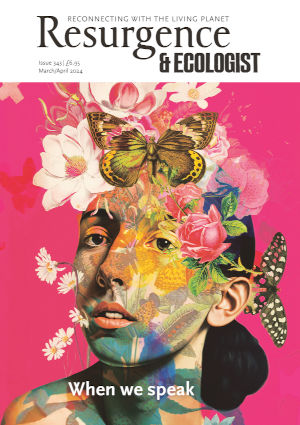Why write a book about the possible future supercontinent dubbed Amasia, a landmass not expected to fully form until 200 million years from now? Author Ross Mitchell credits the naming to Paul Hoffman, a geologist currently based in Beijing at the Institute of Geology and Geophysics of the Chinese Academy of Sciences. What Mitchell’s work has mostly concerned until now is the past, constructing the record of what happened before. To get us interested in that, and why it matters, he has written instead about the future. But what this book is actually about is neither the future nor the past: The Next Supercontinent concerns our present. What is it that we believe?
Much that is of contemporary importance is mentioned early on: renewable energy, melting polar ice caps, sea level rise, volcanic activity generating greenhouse gases, and what we might do to mitigate our own very volcanic effects on the atmosphere. Although this is still ostensibly a book about plate tectonics, it is really about so much more. Mitchell knows it is unbelievably unlikely that Amasia will stick as the name of the next supercontinent to come. For a start, almost no mammal species survives more than a few million years, at most. The majority last less than a million, a tiny number for just over three score million, and none for any longer than that.
The first section of this book tells a now-old story far better than it is usually told – more readable, more gripping. I learned of what has been discovered since I was taught about plate tectonics in the 1980s at university when my physical geography lecturer drew meticulous, multicoloured diagrams on a chalkboard in Newcastle upon Tyne. I must have been among the last geography students ever to be taught plate tectonics through chalk drawings – clearly things have moved on!
But what will be the shape of Amasia? Of course, we cannot be at all sure. We are only just learning to crawl when it comes to plate tectonics. For those of us who are older, our grandparents knew nothing of this. Mitchell admits he is not even sure the Pacific Ocean will be the first to close.
At times The Next Supercontinent is too sweeping. For someone who is currently studying for a doctoral degree it is a little too humbling to read: “Our story starts with the humblest beginnings of any scientist: the PhD thesis.” A PhD thesis is not necessarily that humble or an easy thing to complete. For many academics it will be the most complex piece of work they have ever conducted.
This lovely book, though, is a story of how quickly we are changing what it is we know, how we think, and how we think about how we think. And what it is we value most. None of our descendants will survive long enough to see any practical effects of tectonic change. The reshaping of the continents will not matter to our species. We will not be there. We are not an especially careful mammal. If we are lucky, maybe we have a million years to go, maybe even two. But this book is not about that. It is ultimately about science, as the new religion of our times, and how we think of eternity. It is about us, and what we are becoming.
Mitchell ends the work by thanking others. The idea for the book came from his editor, Joe Calamia, and the rest of the acknowledgements are to Mitchell’s many teachers, collaborators and family. The book ends: “Above all, thanks to the University of Chicago Press for taking a chance on a first-time author. Let’s do it again sometime.” For a debut book, The Next Supercontinent is quite something. Please read it!
The Next Supercontinent: Solving the Puzzle of a Future Pangea by Ross Mitchell. University of Chicago Press, 2023. ISBN: 9780226824918.







